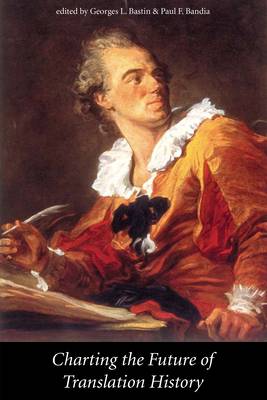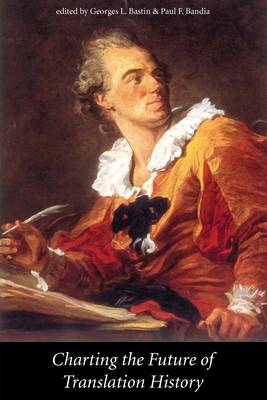
- Afhalen na 1 uur in een winkel met voorraad
- Gratis thuislevering in België vanaf € 30
- Ruim aanbod met 7 miljoen producten
- Afhalen na 1 uur in een winkel met voorraad
- Gratis thuislevering in België vanaf € 30
- Ruim aanbod met 7 miljoen producten
Zoeken
Charting the Future of Translation History
€ 37,95
+ 75 punten
Omschrijving
Over the last 30 years there has been a substantial increase in the study of the history of translation. Both well-known and lesser-known specialists in translation studies have worked tirelessly to give the history of translation its rightful place. Clearly, progress has been made, and the history of translation has become a viable independent research area.
This book aims at claiming such autonomy for the field with a renewed vigour. It seeks to explore issues related to methodology as well as a variety of discourses on history with a view to laying the groundwork for new avenues, new models, new methods. It aspires to challenge existing theoretical and ideological frameworks. It looks toward the future of history. It is an attempt to address shortcomings that have prevented translation history from reaching its full disciplinary potential. From microhistory, archaeology, periodization, to issues of subjectivity and postmodernism, methodological lacunae are being filled. Contributors to this volume go far beyond the text to uncover the role translation has played in many different times and settings such as Europe, Africa, Latin America, the Middle-East and Asia from the 6th century to the 20th. These contributions, which deal variously with the discourses on methodology and history, recast the discipline of translation history in a new light and pave the way to the future of research and teaching in the field. Published in English.Specificaties
Betrokkenen
- Uitgeverij:
Inhoud
- Aantal bladzijden:
- 351
- Taal:
- Engels
- Reeks:
Eigenschappen
- Productcode (EAN):
- 9780776606248
- Verschijningsdatum:
- 28/07/2006
- Uitvoering:
- Paperback
- Formaat:
- Trade paperback (VS)
- Afmetingen:
- 167 mm x 228 mm
- Gewicht:
- 471 g

Alleen bij Standaard Boekhandel
+ 75 punten op je klantenkaart van Standaard Boekhandel
Beoordelingen
We publiceren alleen reviews die voldoen aan de voorwaarden voor reviews. Bekijk onze voorwaarden voor reviews.










